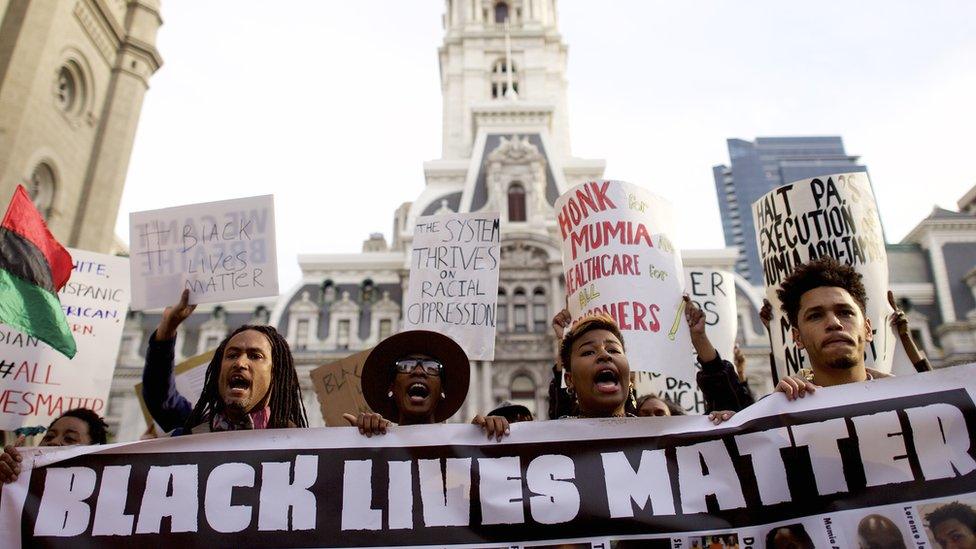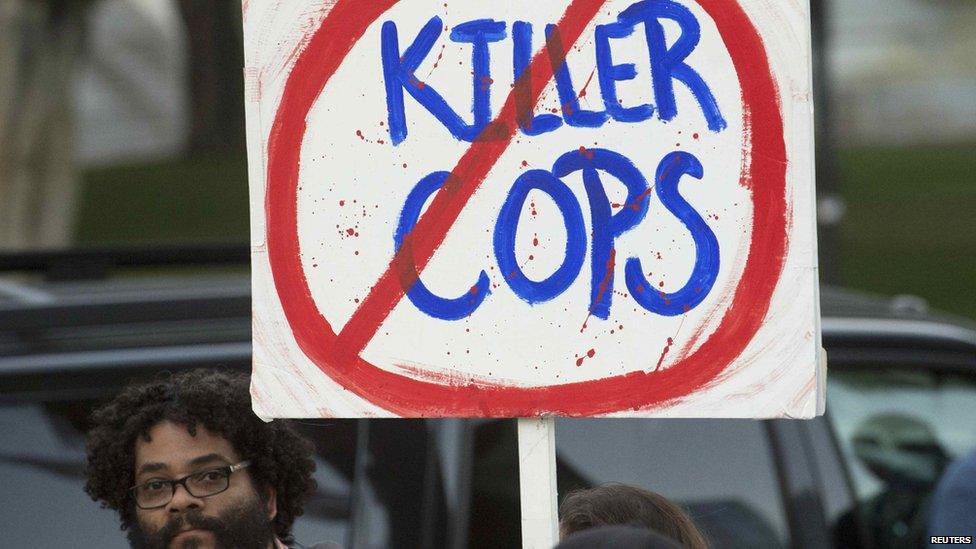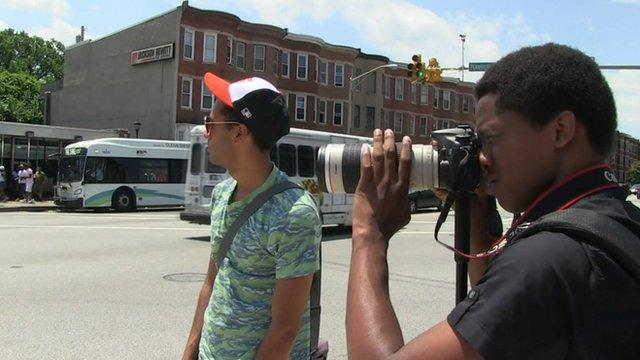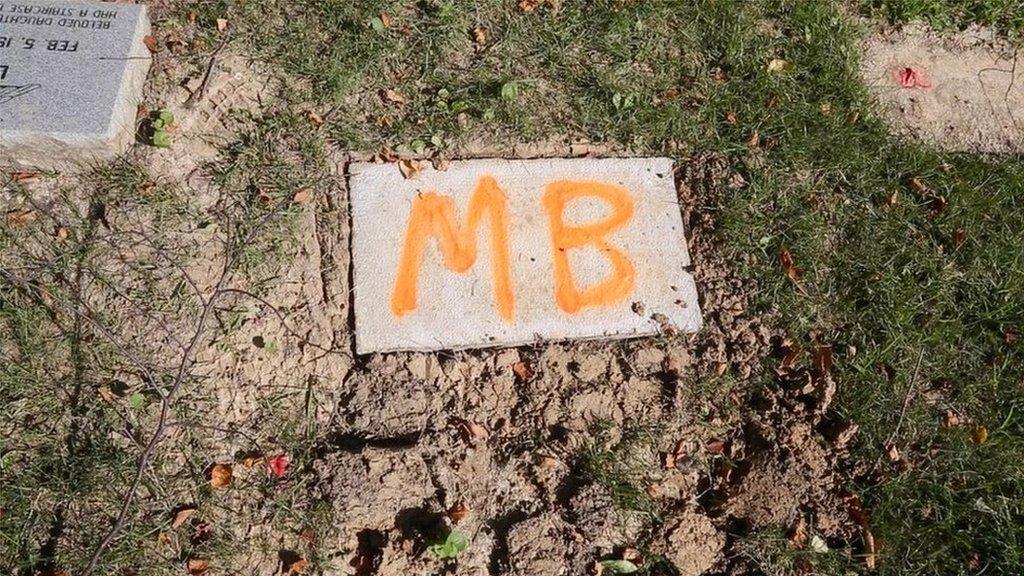Black Lives Matters activists outline policy goals
- Published

Black Lives Matter activists were called on to make an action plan for supporters of their movement
Black Lives Matter activists have released a 10 point plan, external to address abuses by US police forces after critics said that the group has lacked direction.
The plan, called "Campaign Zero", urges policy changes and proposes laws on federal, state and local levels.
Democratic presidential candidate Hillary Clinton recently met with activists and urged practical steps.
Pressed for her solutions, she called on the group for a plan instead.
"I don't believe you change hearts, I believe you change laws," she said.
The Black Lives Matter movement was originally formed after George Zimmerman, an Hispanic man in Florida, was acquitted in the shooting death of black teen Trayvon Martin.
It grew to greater prominence after a white policeman killed Michael Brown - an unarmed black teenager - in Ferguson, Missouri, last year.

"Black Lives Matter" protests have cropped up across the US in cities from Los Angeles to New York
The plans calls for:
Ending "broken windows" policing, which aggressively polices minor crimes in an attempt to stop larger ones
using community oversight for misconduct rather than having police decide what consequences officers face
making standards for reporting police use of deadly force
independently investigating and prosecuting police misconduct
having the racial makeup of police departments reflect the communities they serve
requiring officers to wear body cameras
providing more training for police officers
ending for-profit policing practices
ending the police use of military equipment
implementing police union contracts that hold officers accountable for misconduct
"Campaign Zero was informed by the demands of protestors nationwide, research and input from many folks," tweeted, external DeRay Mckesson, an organiser with the Black Lives Matter movement.
The protest movement has continued to gain strength over the past year after several controversial police-involved deaths of black people including those of Eric Garner, Freddie Gray and Sandra Bland.
In recent weeks, Black Lives Matters protesters have interrupted campaign events of several presidential candidates, calling for more focus on racial and criminal justice issues among the hopefuls.
On the plan's website, scorecards for the 2016 US presidential candidates, including Martin O'Malley, Bernie Sanders, Hillary Clinton, Rand Paul, Jeb Bush and Donald Trump, encourage people to track candidates' proposed agendas to fight police aggression according to the group's 10 action points.
Jeb Bush and Donald Trump are listed as having no policing agenda at all. Rand Paul and Hillary Clinton's policy agendas trail behind those of Bernie Sanders and Martin O'Malley.
In 1994 Ms Clinton lobbied for one of the largest crime bills in US history, the Violent Crime Control and Law Enforcement Act, which provided billions for prisons. The law also introduced the "three strikes" policy, which called for mandatory life imprisonment without parole for federal offenders with three or more felony or drug trafficking convictions.
Mrs Clinton has changed her position since she has been on the campaign trail, calling for the end of mass incarceration and expressing her concern over police violence and black people.
"We must end police violence so we can live and feel safe in this country," the group writes on the "Vision Zero" site. "We can live in a world where the police don't kill people by limiting police interventions, improving community interactions and ensuring accountability."
- Published20 August 2015

- Published7 August 2015
